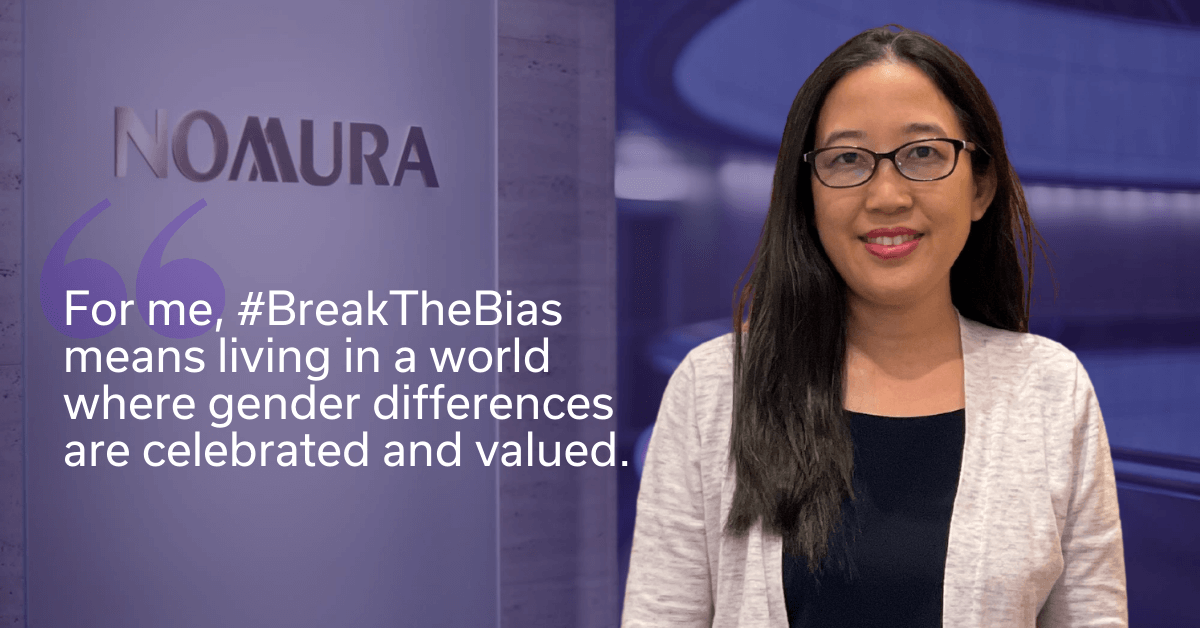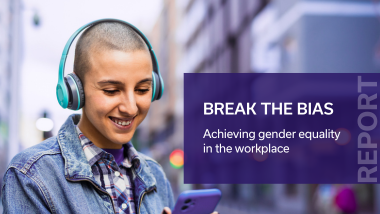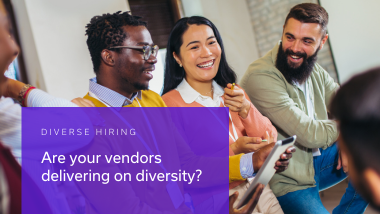Driving diversity and inclusion forward at Nomura
To celebrate Women’s History Month, we’ve been speaking to inspiring women in leadership to learn about their career journeys, the experiences that have made them who they are today, and what #BreakTheBias – the theme for International Women’s Day 2022 – means to them.
Nathalie Yan joined global financial services group Nomura in July 2021 as Executive Director and Head of Diversity & Inclusion, Asia ex-Japan. She believes her experience of growing up as a racial minority instilled the importance of diversity and inclusion within her own moral coding. As a young child, Nathalie had a sense of the racism that her ethnic group often encountered. As an adult, she experienced further discrimination and bias early in her career. However, Nathalie has used these instances to galvanise her passion for diversity and inclusion – and ultimately excel in her role.
We spoke to Nathalie about the exciting initiatives Nomura has in the pipeline, the changes she’s seen in the financial services sector since joining in 2008, and the most important step organisations can take to foster a more inclusive culture.
As Head of Diversity & Inclusion, Asia, what are your main responsibilities?
My role has three parts to it. The first is working closely with our senior management teams across Asia, excluding Japan, to align our diversity and inclusion strategy with business outcomes. The second is making sure inclusion is embedded within the firm's structures, processes and systems, while reinforcing changes in behaviour that can help us achieve a truly inclusive workplace. The third – and most fun – part of my job is partnering closely with Nomura’s employee networks to promote best practices and ensure that their activities align with our diversity and inclusion strategy.
How do you drive regional diversity and inclusion initiatives at Nomura?
One of the first things I noticed when I joined Nomura was the unique way the organisation drives diversity and inclusion initiatives. There are several channels, such as our four employee-led networks within the APAC region: Women in Nomura network, the LGBT+ network, the Life and Families network, and the Mental Health network, which was set up in 2021. These networks are co-sponsored by two members of the senior leadership team. They decide on the initiatives they want to prioritise throughout the year. As it's all employee-led, these networks basically represent the voice of our employees.
Another channel is functionally driven by the business. For example, in 2018, Nomura’s front office decided to take a more focused approach to gender diversity and set up a wholesale diversity working group. By collecting and analysing data, this group has identified five different work streams that they needed to focus on to ensure progress: recruitment, advancement, mentoring, maternity and retention. These workstreams are frequently reviewed so we can make continuous improvements. They've done great work with this initiative – to the extent that they've been able to influence some of the policies we've had across the region.
Can you describe some of the initiatives you’ve been working on?
I’ve recently spent a lot of time developing mental health initiatives. This topic often has a stigma attached to it and we’ve found that employees can be reluctant to share information or even seek support regarding mental health. In 2021, we became a founding member of WorkWell Leaders – Singapore’s first non-profit organisation to focus on building a community of CEOs and world leaders who champion wellbeing as a strategic priority for their organisation. In the same year, we celebrated our global diversity and inclusion month, featuring key events such as Transgender Awareness Week and Movember. I’ve been working closely with our Women in Nomura network to develop compelling events for International Women’s Day 2022.
Supporting inclusion is not just something we do inside the organisation. Part of my role is influencing what happens outside of Nomura. This year, we’re supporting the launch of a five-week training and networking programme for underprivileged girls in Hong Kong. The initiative – titled “Your Future in Finance: Banking and Beyond” – will be led by Bloomberg. We’re delighted to be one of eight financial institutions collaborating with one another to provide resources that will inspire ambitious girls to explore and consider a career in the finance industry.
Have you set out goals that you would like to achieve in your role?
Firstly, I would like to increase the representation of underrepresented groups. This will help us foster a more diverse workforce. Another goal of mine is creating a culture where everybody – from employees and managers to senior leaders – is a role model for inclusion. It's important that employees feel they can bring their own selves to work and have a sense of belonging to the organisation, which will also drive engagement. Finally, I’m striving for Nomura to be seen as an employer of choice for candidates who value diversity and inclusion.
What does #BreakTheBias – IWD22’s theme – mean to you?
For me, it's about living in a world where men and women are treated equally and have access to the same opportunities – a world where gender differences are celebrated and valued.
What actions will you take to #BreakTheBias?
On a personal level, I will try to honour my father’s approach. He had two daughters, no sons, and he always told us that no activity or hobby was exclusively for boys or girls. He encouraged my sister and I to pursue our dreams, and neither of us ever saw our gender as an obstacle. As a mother of twin girls, I would like to inspire and encourage them each day to achieve their dreams and reach their full potential – just as my father did when we were growing up.
On a professional level, my role allows me to promote change in the workplace and externally through the various platforms I have access to. I will continue to raise awareness about the benefits of a diverse workforce and ensuring inclusion plays a key role in Nomura's structures, processes and systems.
What’s the number one change you would like to see made in order to advance gender equality at work?
It's imperative that leaders and managers share accountability for all diversity and inclusion outcomes. It's not something that one department, such as HR, should be handling and monitoring exclusively. A key way to advance gender equality is ensuring all managers have diversity and inclusion goals as part of their annual objectives. If these goals are given the same importance as business results, I believe we'll see a lot of progress.
Download our whitepaper, Break the Bias: Achieving gender equality in the workplace, for further insights into gender equality and how hidden bias within your recruitment process could be alienating diverse talent. In addition, you’ll discover actionable tips for fostering a more inclusive company culture.













